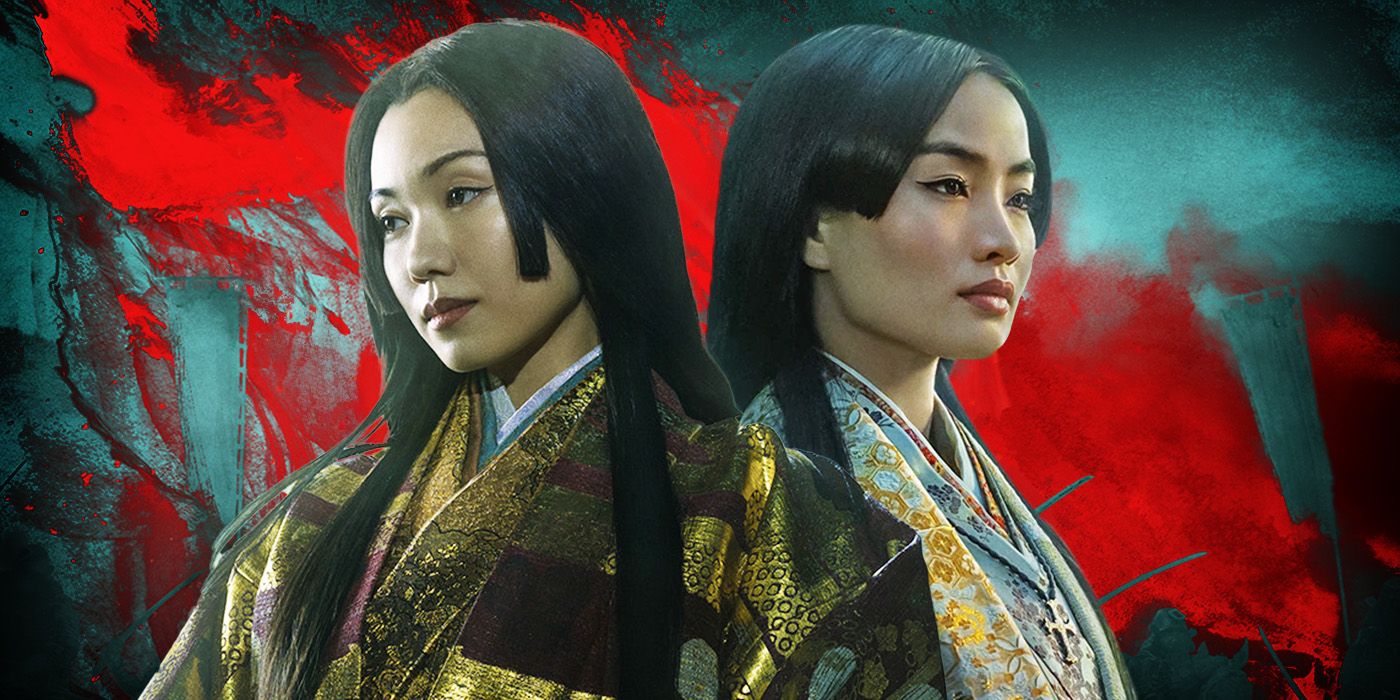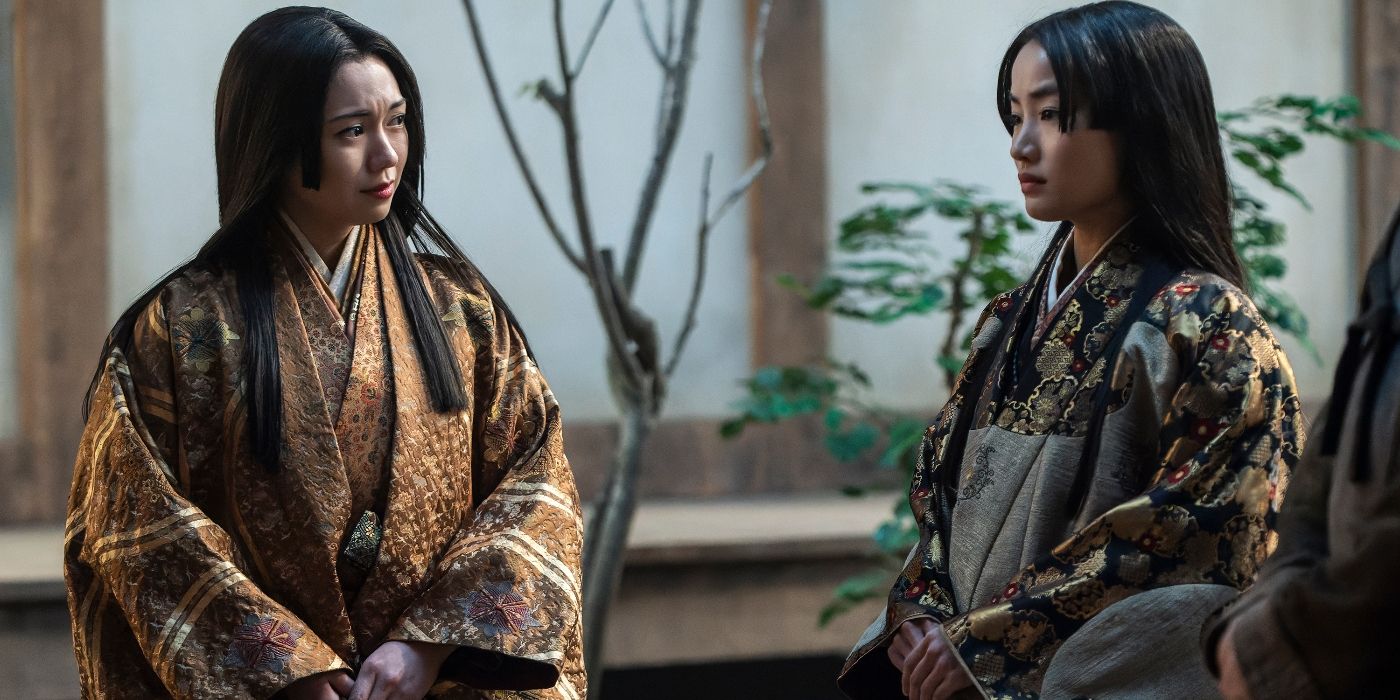Summary
IfShogun’s refreshingly unconventional finale confirms anything, it’sthe FX epic’s way with words.
Battle scenes?There’s no time when the dialogueis tantamount to a feast.
Tensions rise through conversations that are gradated with meaning, and concurrent levels of meaning at that.

Image via Zanda Rice
Characters manipulate and conceal.
Language is power, and language is a dance; succinct statements trump prosaic speeches.
Both men trust Mariko with their words.

When a mysterious European ship is found marooned in a nearby fishing village, Lord Yoshii Toranaga discovers secrets that could tip the scales of power and devastate his enemies.
(Cue thedelightful memes.)
The multilingual Mariko understands the power of words more thanotherShoguncharacters.
So is Ochibas,her oldest and only childhood friend.

Image via FX
Both women were placed on opposite sides ofShogunsconflict through no means of their own.
Buntaro won’t let Mariko performseppuku, an act of dissent that should be her right.
As a married woman, Mariko has no rights; she’s trapped.

Countless women have already failed, making motherhood Ochiba’s sole purpose.
Until the finale,both women choose different methods of resistance.
Mariko continues her father’s fight by following Toranaga.
Ultimately, it doesn’t matter.
Mariko and Ochiba seek single-minded justice for their families.
Except, there’s no need for war.
Personal enmities waged against trauma and injustice, yes, but not the kind of battle that devastates nations.
Mariko makes that clear duringher session with the Regents and Ochibain Episode 9.
What Does Marikos Poem Mean in ‘Shogun?
For lack of a more applicable term, it’s an olive branch.
Mariko doesn’t want Ochiba to suffer in the upcoming conflict, let alone die.
A lesser series would set the former friends as bitter enemies.
Instead, Mariko tries to convince Ochiba thather alliance with Ishidois wrong by reaching for Ochiba’s heart.
Mariko’s acknowledgment of Ochiba’s plight dives deeper.
It’s empathy derived from experience, becauseMariko has been the same leafless branch.
Episode 9 opens with a pregnant Mariko fleeing into a haze of snow.
It might be her last escape attempt, but it isn’t her first.
She’s desperately grieving her family’s death.
Moreover, she’s helpless.
She can’t assert her will.
Even though freezing to death in a snowstorm isn’ttraditionalseppuku, it’s worthwhile if she can honor their memories.
Since that moment, Mariko has frozen herself inside an emotional ice storm.
Like the poem says,she’s been “veiled in the haze of cold evening.
“And winter, like all cruelty, leaves leafless branches.
Mariko was stripped bare, and, for a time, had nothing left.
The young, selfish sailor who first set out to sea looking for his destiny finally finds it.
To paraphraseEpisode 6’s brothel scene, Mariko can tell when another woman is suffering.
When she has no true connection in this world save her son?
Whenher father’s accused murdererwanders free with that same world at his fingertips?
Anguish and spite make Ochiba poisonous.
If Mariko endures her torment in stillness, Ochiba snatches at crumbs.
This is where their parallels intensify to breaking.
Sinceneither woman can operate with complete freedom,Mariko speaks through a riddle.
No one suspects that her poem carries the equivalent of a political statement and a platonic love letter.
Men like Ishido and Lord Yabushige (Tadanobu Asano) don’t understand her words.
Their privilege is too absolute.
The message isn’t for their ears, anyway.
Unlike Mariko, her pleas are straightforward when the two share an almost private conversation.
She begs the other noblewoman to stand down and accuses Mariko of being Toranaga’s unwitting pawn.
First, she adds Mariko’s poignant statement that flowers are only flowers because they fall.
Doing so honors Mariko’s life and the meaning her death holds.
As she mourns her surrogate sister and reassesses her once-insular world, Ochiba pens the poem’s final line.
“Thankfully, the wind,” she says, gazing pensively into the middle distance.
Shogunequates the wind with fate.
To carry the metaphor further, the wind spins fallen flower petals to freedom.
It carries them to places they haven’t seen and otherwise couldn’t reach.
By hoping as much for Mariko’s spirit,Ochiba realizes she need not remain a leafless branch.
The ones that did fall can dance in the wind.
Every word means something, even if the audience doesn’t consciously realize it.
Shogunis available to stream on Hulu in the U.S.
Watch on Hulu